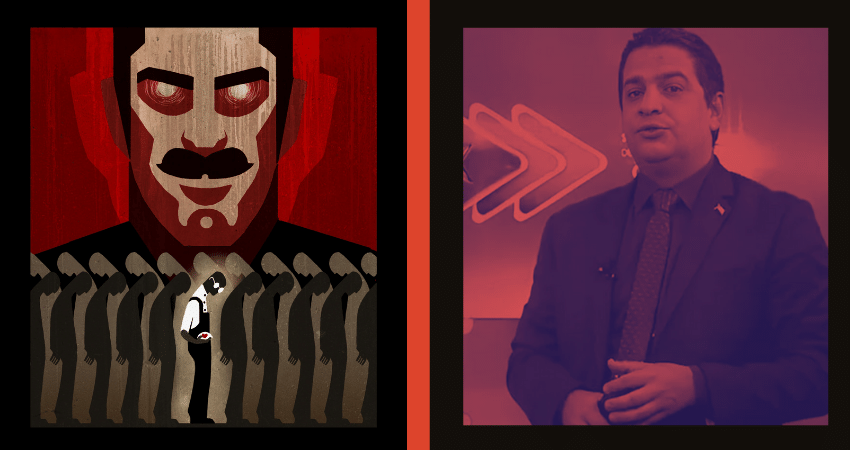George Orwell is best known for his anti-totalitarian novels “Animal Farm” and “1984.” A fighter against Franco in the Spanish Civil War, Orwell got disappointed by the practices of the Stalinists and dedicated the last stage of his work to combat totalitarianism. In “1984“, published in 1949, he describes a fictitious society characterized, among other features, by an assault on freedom of expression and thought and a paralyzing climate of suspicion and fear. From Orwell we inherit terms such as The Big Brother, who watches over us; the Thought Police and the Two Minutes of Hate.
Any resemblance to the Cuban reality is not a pure coincidence. Amnesty International has just recalled this in relation to what it calls “fearful levels of surveillance” to which all members of the San Isidro Movement are subjected. For two weeks, Amnesty monitors collected testimonies from activists about their police siege and how they risk arrest if they leave their homes.
“These worrisome restrictions are something like from an Orwell novel, on a background of palm trees in Havana,” said Erika Guevara-Rosas, the organization’s representative for Latin America. “The police presence in front of their homes and the constant threat of arrest is so intense that the activists are, in essence, imprisoned in their own homes,” she added. The Amnesty representative pointed out that this surveillance and harassment are unacceptable under International Law, because the regime is violating the universal rights to privacy and freedom of movement.
We are reminded of Orwell not only by the plainclothes policemen by the doors of the San Isidro freethinkers but also by those who attack them in the official media, emulating the two minutes of hate of 1984. Like the TV anchor and lawyer Humberto Lopez, who has drawn a target on their backs by depicting them on national TV as terrorists and mercenaries. As the British writer of the two minutes of hate described: A hideous ecstasy of fear and vindictiveness, a desire to kill, to torture, to smash faces in with a sledge hammer, seemed to flow through the whole group of people.”
Lopez and company should take note: As they are not fictional characters but real-life ones, they may also face criminal liability in the future for inciting violence. It has already happened with some radio announcers who instigated massacres in Rwanda.
Rolando Cartaya
Links
La vigilancia en Cuba es como una novela de Orwell, advierte Amnistía Internacional

